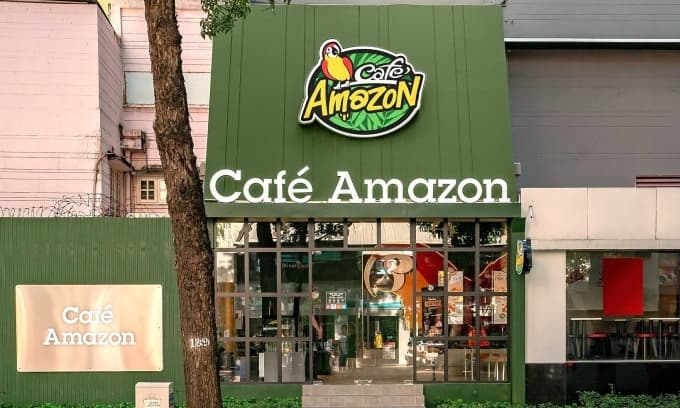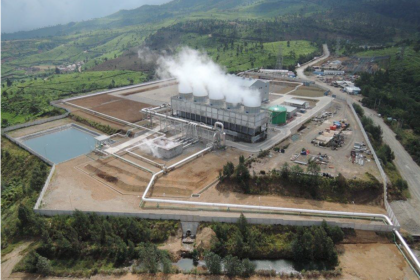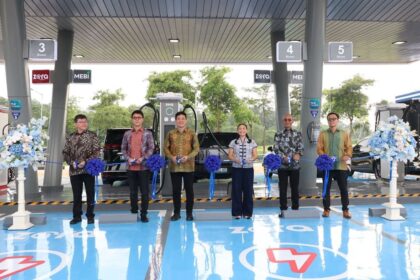What just happened
As of November 18, Cafe Amazon, Thailand’s largest coffee chain, has closed all 12 of its stores in Vietnam, drawing a line under a five year push into one of Asia’s most competitive coffee markets. A senior manager confirmed that locations had stopped serving customers. In Ho Chi Minh City and the Mekong Delta, signs came down, leases were returned, and some spaces already have new tenants. The brand’s local social media now auto replies that operations have ceased in Vietnam. Employees shared farewell photos from their final shifts, and the brand no longer appears on popular food delivery apps.
- What just happened
- Why Vietnam proved a hard market
- Costs, consumer behavior, and the 2025 F&B squeeze
- Strategy reset at the partners behind Cafe Amazon
- What made the playbook hard to copy in Vietnam
- Lessons for foreign F&B brands in Vietnam
- What happens to sites and staff
- Where Cafe Amazon goes from here
- Key Points
The shutdown followed a clear signal in early October, when Central Plaza Hotel Public Company Limited of Thailand moved to dissolve ORC Coffee Passion Group, the joint venture that operated Cafe Amazon in Vietnam. ORC Coffee Passion Group was owned 60 percent by PTTOR International Holdings (a subsidiary of PTT Oil and Retail Business) and 40 percent by Central Restaurants Group, an indirect Centel unit. Centel said it would refocus business priorities and adapt to market challenges. By August 31, the company’s investment in the venture was about 1.72 million dollars. The brand’s headquarters has not issued a public statement, but the exit is complete on the ground.
The timeline of the retreat
Cafe Amazon entered Vietnam in November 2020 with a first store in Ho Chi Minh City. The company brought its oasis themed design and tailored the menu, adding Vietnamese style coffee, teas, and seasonal drinks alongside Thai style beverages. Expansion stayed modest. The brand reached roughly a dozen locations concentrated in Ho Chi Minh City, with several in Can Tho, Dong Thap, and Vinh Long. That footprint fell short of early expectations in a market where rivals scale by the hundreds. By mid October 2025, the partners moved to unwind the venture, and on November 18 the final stores closed.
Why Vietnam proved a hard market
Vietnam’s coffee scene is dense, price sensitive, and deeply rooted in daily routines. Local players command strong loyalty, and independent cafes thrive alongside large chains. The market leaders include Highlands Coffee, Phuc Long, Katinat, Trung Nguyen Legend Cafe, The Coffee House, and Starbucks. Highlands Coffee alone operated 928 stores as of late September 2025, and the company recently posted its strongest quarterly profit in two years. A newcomer must stand out on price, flavor, and convenience, often all at once.
Competition and scale
Scale is a decisive advantage in the coffee business. Big chains negotiate better ingredient costs, occupy prime corners in office and transit hubs, and blanket delivery platforms with short delivery radiuses. Smaller networks struggle to secure visibility and absorb promotions. Cafe Amazon’s 12 store presence limited brand reach and made it harder to deliver national campaigns or loyalty benefits. When competitors run hundreds of locations and rotate frequent promotions, the cost to keep up can outweigh the revenue lift for a small network.
Format advantage missing
In Thailand, Cafe Amazon’s signature strategy is to co locate with PTT petrol stations. Drivers who stop for fuel often grab a coffee, snack, or milk tea, creating built in foot traffic with low marketing spend. Vietnam does not offer the same nationwide petrol station platform for Cafe Amazon to plug into. Without an integrated forecourt partner, the brand had to compete for streetfront or mall sites, carry higher fixed rents, and build traffic store by store. That is a tougher financial equation in a crowded field where many rivals already own the best corners.
Costs, consumer behavior, and the 2025 F&B squeeze
Headwinds in 2025 extended beyond coffee. Vietnam’s food and beverage (F&B) sector has been contracting. A market report for the first half of the year counted just under 300000 active outlets, down 7.1 percent from 2024. Hanoi and Ho Chi Minh City each recorded declines above 11 percent. Many closures trace back to weak operational efficiency, poor cost control, high rent, and a lack of capital to sustain losses through the first years of scaling.
Taku Tanaka, CEO and founder of supply platform Kamereo, has worked with many restaurant operators during this downturn. He framed the core problem bluntly.
“The main reason these businesses closed is simple: they weren’t making money. In many cases, revenues couldn’t keep up with rising costs, and eventually, the cash ran out.”
Ralf Matthaes, managing director of IFM Research, highlighted how consumer behavior and saturated markets raised the bar for newcomers.
“Consumers are staying at home more. Economically, there is still a high level of uncertainty, and consumers are practicing cautious spending. The markets in Hanoi and Ho Chi Minh City are already saturated with F&B brands, and consumers are more apt to stay with long established existing brands.”
Those dynamics make expansion expensive for any entrant. For Cafe Amazon, a small base of stores meant limited delivery coverage and fewer loyalty touchpoints. Local chains and neighborhood cafes match Vietnamese taste profiles and value expectations, often at lower prices. That combination creates a difficult runway for a foreign brand without a unique traffic engine or a strong embedded network.
Strategy reset at the partners behind Cafe Amazon
The Vietnam business sat under ORC Coffee Passion Group, a joint venture between PTTOR International Holdings (60 percent) and Central Restaurants Group, an indirect subsidiary of Centel (40 percent). As of August 31 2025, Centel carried an investment of about 1.72 million dollars in the venture. In October the partners moved to dissolve the entity, ending a five year run in Vietnam.
Centel summarized its rationale in a formal update to regulators in Bangkok.
“The withdrawal aims to realign business priorities and adapt to market challenges.”
While stepping back from Vietnam, Cafe Amazon continues to expand elsewhere through franchise partners. The brand has grown to more than 5000 stores across Asia and the Middle East, most of them in Thailand. In the second quarter of fiscal 2025 the chain sold over 107 million cups of coffee, up nearly 5 percent from a year earlier. Future expansion is aimed at Laos, the Philippines, Japan, Oman, and Bahrain, where franchisees operate under consistent design, quality, and service standards.
What made the playbook hard to copy in Vietnam
Cafe Amazon exported its oasis themed design and localized the menu for local tastes, offering Vietnamese style coffee and teas alongside Thai favorites and seasonal drinks. The concept resonates with travelers and commuters in Thailand’s petrol station network, where visits are frequent and quick. In Vietnam, the brand relied on urban street and mall sites, where rents are high and customer acquisition requires constant promotions, delivery partnerships, and targeted marketing. Without an integrated ecosystem of fuel, convenience retail, and loyalty, the steady footfall that powers the brand in Thailand is harder to recreate.
Vietnam’s coffee culture is both deep and diverse. Many consumers favor robusta based drinks brewed with the phin filter, especially iced coffee with condensed milk. Homegrown chains compete on familiarity and price, while independent cafes carve out local followings with distinctive roasts and settings. Even small price gaps can influence daily purchase choices. That makes it difficult for an international entrant to be both premium enough to cover costs and mass market enough to win daily rituals.
Lessons for foreign F&B brands in Vietnam
- Prove unit economics in one city before expanding widely. Scale matters, but only when the first stores consistently generate cash.
- Secure anchor partnerships that drive daily traffic, such as transit hubs or workplaces, to reduce reliance on paid marketing.
- Keep lease structures flexible where possible. High fixed rent can erase thin margins in a downturn.
- Localize the menu to match taste and price expectations, while keeping a clear brand identity that travels across cities.
- Invest in marketing beyond social media. Build loyalty programs and delivery coverage that reward frequent purchases.
- Plan for patient capital. Competition is intense, and consumer habits take time to shift.
What happens to sites and staff
Across Ho Chi Minh City, former Cafe Amazon sites have already started to flip to new tenants. The brand removed signage and handed back properties to landlords. Employees posted farewell messages and photos from their last day of work. With the chain off food delivery apps and storefronts closed, there is no indication of staff redeployment under the brand within Vietnam.
Where Cafe Amazon goes from here
Vietnam is no longer on the company’s near term expansion map. Growth is concentrated in Laos, the Philippines, Japan, Oman, and Bahrain through a franchise model designed to keep store design and drink quality consistent. In markets where the brand can connect with fuel retail or other high traffic networks, the format tends to scale faster. For now, Vietnam’s growth story in coffee continues to be led by local champions and a few global players that have built deep networks over many years.
Key Points
- Cafe Amazon closed all 12 stores in Vietnam on November 18 2025 after five years in the market.
- The exit followed the dissolution of ORC Coffee Passion Group, the joint venture between PTTOR International Holdings (60 percent) and Central Restaurants Group (40 percent).
- Centel’s investment in the venture stood at about 1.72 million dollars as of August 31 2025.
- Vietnam’s coffee market is dominated by local and international chains, led by Highlands Coffee with 928 stores as of late September 2025.
- Cafe Amazon could not replicate its Thai advantage of petrol station locations in Vietnam, raising costs and limiting built in traffic.
- Vietnam’s F&B sector contracted in the first half of 2025, with the number of active outlets down 7.1 percent year on year.
- Experts cite weak profitability, high rents, and cautious consumer spending as key reasons for closures.
- After exiting Vietnam, Cafe Amazon is focusing expansion on Laos, the Philippines, Japan, Oman, and Bahrain through franchising.












